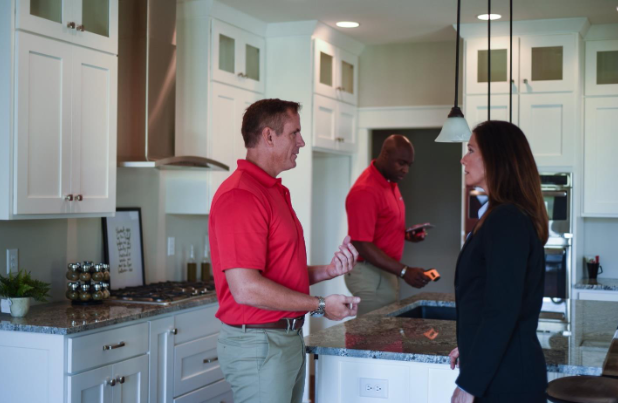How Do Home Inspections Impact Property Value?

Regular home inspections allow owners to stay up-to-date with the state of their homes and maintain property value as best as possible.
Determining property value can be difficult as it is often done infrequently, ebbing and flowing alongside larger market trends. However, annual home inspections can support homeowners in keeping their property values high.
Ultimately, “property value” comes down to how much someone is willing to buy or sell a home for.
“What many people don’t think about is that property value is not what Zillow says your house is worth,” said Adam Long, president of HomeTeam Inspection Service. “It is what the potential buyer or bank says your house is worth.”
Over the past two years, property values skyrocketed as the real estate market heated up, inventory dwindled, and buyers were willing to put forth a substantial amount of additional money to secure their spot. Typically, Long said, property values will increase by about 3% each year. Over the last 24 months, they increased by anywhere from 15% to 30%, sometimes even higher.
Now, however, demand has cooled, supply is slowly increasing and prices are leveling out.
Though the market is a key driver of property value, it is not the only factor; there were still homes left untouched during periods of soaring demand due to their condition. This is where home inspections come into play. “There are three major ways that home inspections can impact property value,” Long added. “They help homeowners find small issues before they become major issues, they give owners an opportunity to make repairs prior to listing a home should they be interested in selling, and they streamline the buying process by reducing the risk of surprises.”
Find Small Issues Before They Grow
Annual home inspections can improve your standard maintenance practices for even better results.
“Regardless of whether an owner is selling or not, regular inspections are a great thing to incorporate into your home care,” Long said. “Basically, if you’re able to identify these smaller issues before they’re really affecting property value, you can take steps to fix them before they grow, have larger consequences or cause a property’s value to
decrease.” This also plays an important role in the health and safety of residents. “Finding a plumbing leak is better than finding major wood rot or mold,” he added. “If you find radon, poor air or water quality, you have time to fix it before it does too much damage.”
Pre-Listing Inspections Help To Manage Expectations
A pre-listing inspection helps sellers to focus on what really matters. “Home sellers will often spend a lot of money on new paint, putting in new landscaping or staging the home — people can spend thousands of dollars staging their home,” Long explained. “But if they do not have a pre-listing inspection, some things that need to be repaired may go unnoticed. If those things are fixed ahead of time, sellers can list the house at the highest property value.”
Having this pre-listing inspection, of course, increases property value should it reveal any repairs that need to be made ahead of time. However, it also has a less tangible impact on property value. For buyers looking at multiple homes, the knowledge that a home has already been inspected and is in a condition that sellers are proud to be transparent about can be an attractive detail.
“We have moved from a seller’s market to a buyer’s market. In a buyer’s market, it’s really important that sellers put their home out in a way that stands out from other potential homes, especially with home values where they are now,” Long added.
Make the Selling Process Smoother
Both regular and pre-listing inspections streamline the selling process by decreasing the likelihood of any surprises during a home inspection requested by the buyer.
“If a large problem is revealed during a home inspection after an agreement has been reached between the buyer and seller, that can be a huge disruption,” Long explained. “If you know what is wrong with your house, you can either do the necessary repairs or list the home at the price point that makes the most sense.”



